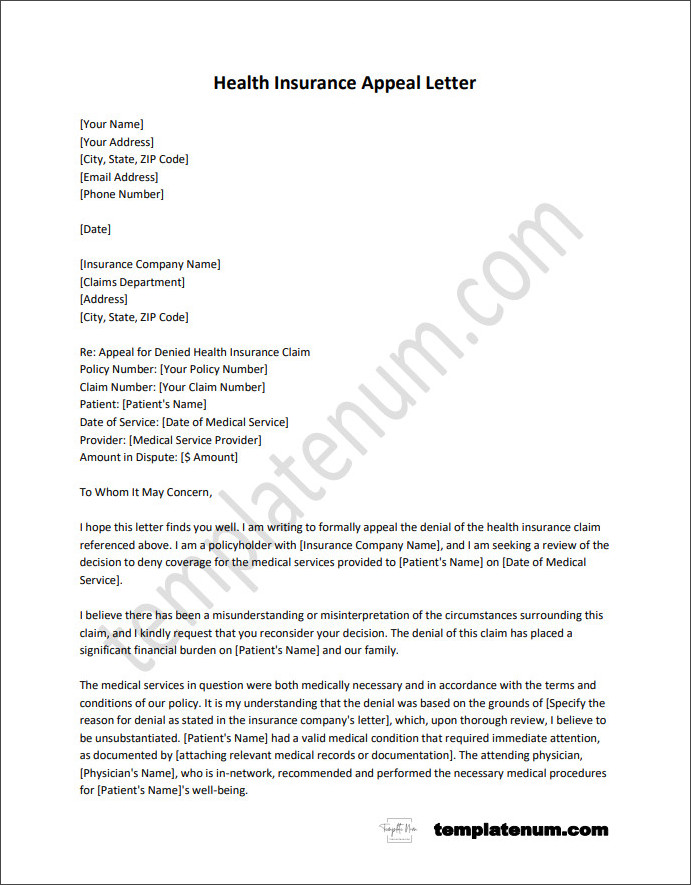
What is a health insurance appeal letter? What are the purpose and benefits?
A health insurance appeal letter is a written request to the insurance company to reconsider its decision to deny coverage or payment for a medical service or treatment. It is a formal document that outlines the reasons why the denial should be overturned. The purpose of an appeal letter is to advocate for the insured individual and provide additional information or evidence to support the claim.
The benefits of a health insurance appeal letter are twofold. Firstly, it gives the insured person an opportunity to have their case reviewed by a different set of eyes within the insurance company. This increases the chances of a favorable outcome and potentially saves the individual from having to pay out-of-pocket for necessary medical expenses. Secondly, it helps to ensure that insurance companies are held accountable for their decisions and that they adhere to the terms and conditions of the policy. By filing an appeal, individuals contribute to the overall fairness and transparency of the healthcare system.
In conclusion, a health insurance appeal letter is a crucial tool for individuals to challenge the denial of coverage or payment by their insurance company. It serves the purpose of advocating for the insured person and providing additional information to support the claim. The benefits of filing an appeal include the potential for a favorable outcome and holding insurance companies accountable. It is essential for individuals to understand their rights and options when faced with a denial and to utilize the appeal process to seek a fair resolution.
How to write a health insurance appeal letter
When it comes to dealing with health insurance denials, writing an appeal letter can be an effective way to challenge the decision and increase your chances of getting the coverage you need. To write a compelling health insurance appeal letter, follow these steps:
- Gather all necessary information: Before writing your appeal letter, make sure you have all the relevant information and documentation. This includes your health insurance policy, the denial letter, medical records, and any supporting documents that can reinforce your case.
- Address the letter properly: Begin your appeal letter by addressing it to the appropriate person or department. Use a formal salutation, such as “Dear [Insurance Company Name] Appeals Department.”
- State your purpose clearly: In the opening paragraph, clearly state that you are appealing the denial of your claim. Include the date of the denial letter and any reference numbers or policy details mentioned in the denial.
- Provide a detailed explanation: In the body of the letter, explain why you believe the denial was incorrect. Be specific and provide detailed information about your medical condition, the recommended treatment or procedure, and why it is necessary for your health and well-being.
- Include supporting evidence: Attach copies of any relevant medical records, test results, or doctor’s notes that support your appeal. Make sure to highlight any specific points that directly contradict the reasons given for the denial.
- End with a strong closing: Conclude your appeal letter with a strong statement reiterating your request for coverage and expressing your hope for a favorable outcome. Thank the recipient for their attention and provide your contact information in case they need to reach you for further information.
Writing a health insurance appeal letter can be a crucial step in fighting for the coverage you deserve. By following these guidelines and providing a well-structured and persuasive argument, you can increase your chances of a successful appeal. Remember to keep copies of all correspondence and documentation for your records and be patient as the appeals process can take some time.
Overall, writing a health insurance appeal letter requires careful attention to detail and a strong argument supported by evidence. By following the steps outlined above, you can effectively challenge a denial and increase your chances of getting the coverage you need.